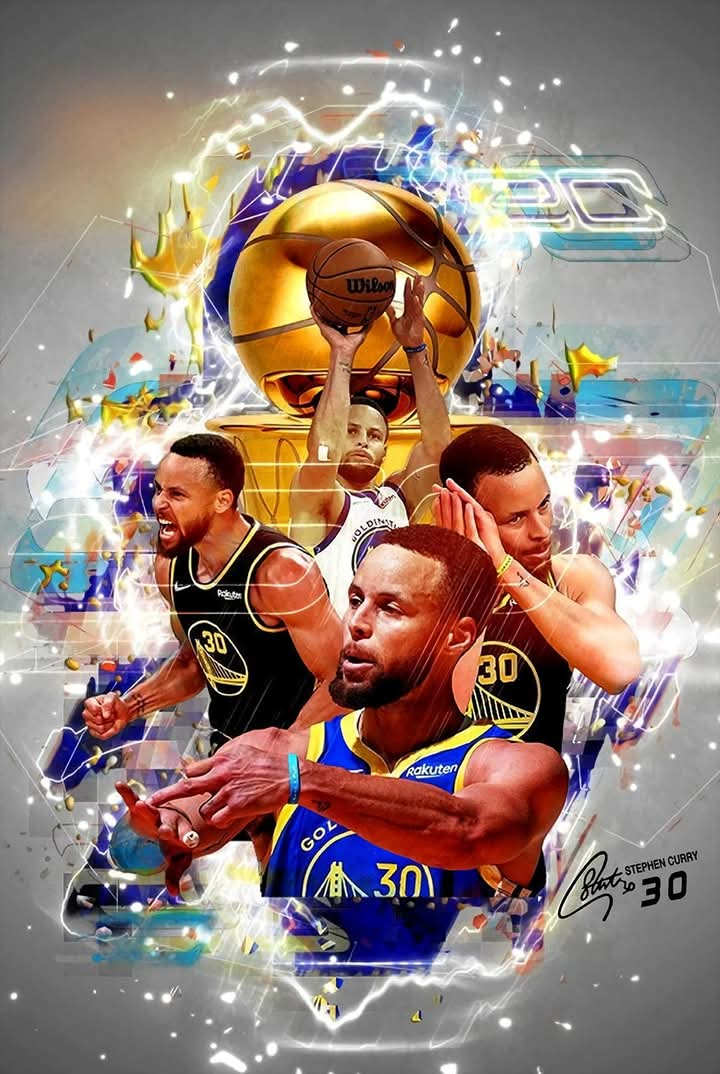Stephen Curry Eyes New Horizons: Broadcasting, Team Ownership, and PGA Tour Champions as NBA Retirement Looms
As one of the most influential athletes in modern sports, Stephen Curry has defined a generation with his transformative impact on basketball. From revolutionizing the game with his range and finesse to becoming a global icon of humility, work ethic, and excellence, Curry’s career has been a mosaic of historic moments and cultural shifts. But even legends must eventually move on from the arenas where they built their legacies.

With the twilight of his NBA career approaching—though not necessarily imminent—Stephen Curry has begun to publicly contemplate what comes next. Far from the traditional notion of retirement, Curry’s post-basketball aspirations reflect the diverse interests and leadership qualities that have long defined him. Among the potential avenues he is considering are broadcasting, sports team ownership, and a professional golf career on the PGA Tour Champions circuit. Each of these paths aligns with a different facet of Curry’s personality and experience, and together they suggest a future as dynamic and multifaceted as his time on the court.
The Inevitable Fade of the Hardwood Lights
Stephen Curry, born in 1988, entered the NBA in 2009 and has since crafted a résumé that few in history can match. Multiple-time NBA champion, two-time MVP (including the league’s first unanimous selection), the all-time leader in three-pointers made—his accomplishments are both individual and team-oriented. Yet, as he moves deeper into his 30s, the physical demands of the sport become harder to ignore.
Athletes of Curry’s caliber rarely leave the game when they are incapable of playing; more often, they depart when they can no longer perform at the level they demand of themselves. For Curry, a player whose game depends not only on skill but on impeccable conditioning, stamina, and agility, knowing when to step away will be crucial.
But Curry’s planning for post-basketball life isn’t driven by fear or decline—it’s driven by curiosity, ambition, and a desire to continue impacting the world beyond the court.
Broadcasting: The Voice Behind the Vision
When great players retire, one common route they often explore is sports broadcasting. It provides a platform to remain close to the game, share insights, and shape public understanding of basketball. Stephen Curry’s name in broadcasting circles isn’t speculative—it’s been raised with increasing frequency as his career winds down.
Unlike some other legends who made the leap into broadcasting with mixed results, Curry brings a unique combination of qualities that could make him an exceptional fit for the medium:
Articulation and Charisma: Curry is notably well-spoken, thoughtful, and has an affable personality that would translate well to TV or digital formats.
Basketball IQ: As a player who reshaped the way basketball is played—from spacing and shooting to pace and tempo—his insights could elevate fan understanding.
Media Savvy: Over his career, Curry has built strong relationships with media and production teams, including ventures like “Stephen vs. The Game” and his production company, Unanimous Media.
Relatability: Curry’s underdog story and grounded demeanor allow him to connect with a wide range of fans, from casual viewers to diehard hoopheads.
Curry has already dipped his toes into storytelling and content creation. Through Unanimous Media, he has produced documentaries, inspirational series, and even animated projects. These experiences not only give him technical knowledge of the broadcasting industry but also reinforce his broader desire to control narratives and inspire through storytelling.
If Curry were to enter broadcasting, he would likely do so on his own terms—not merely as a commentator on TNT or ESPN, but potentially as a hybrid figure: part analyst, part producer, and part visionary. Think of a postmodern Charles Barkley or Tony Romo, with the capacity to dive deeper into strategy while still entertaining a mass audience.
Team Ownership: A Legacy Beyond Playing
Curry’s interest in team ownership isn’t just theoretical; it is deeply personal and philosophical. Few players have displayed as much loyalty to a single franchise as Curry has to the Golden State Warriors. Through thick and thin, he has represented the Bay Area with distinction and has often voiced his desire to remain connected to the Warriors for life.
Ownership represents a new frontier—not just for personal investment but for cultural influence. As professional sports continue to grapple with diversity and inclusion in their executive ranks, Curry represents a beacon of what leadership can look like in a post-playing career. Team ownership would allow him to shape policy, culture, community engagement, and talent development from the top down.
Historically, former players have had limited access to ownership due to the high costs and exclusivity of such positions. However, Curry’s financial acumen, popularity, and business ventures have positioned him differently. With endorsements from major brands like Under Armour, his involvement in tech investments, and his connection to Silicon Valley, he possesses both the capital and connections to make ownership a realistic goal.
Imagine Curry as a part-owner of the Warriors—or potentially even another team—serving as a bridge between the locker room and the boardroom. His presence alone would attract talent, investors, and fans, but more importantly, it would provide a model for player empowerment in the 21st century. Players like Michael Jordan and LeBron James have already paved some of this road, but Curry could bring a new flavor of leadership: collaborative, innovative, and community-driven.
PGA Tour Champions: The Next Great Swing?
Among all the post-retirement options Curry is considering, perhaps the most intriguing—and unexpected—is a turn to professional golf. For those who follow Curry closely, this isn’t as surprising as it sounds. He is an avid golfer with a single-digit handicap and has competed in various pro-am tournaments and celebrity golf events. His love for golf is well-documented, and unlike basketball, it’s a sport where athletes can compete professionally well into their 50s and 60s.
The PGA Tour Champions, which features golfers aged 50 and older, could provide Curry with an entirely new competitive outlet once he steps away from the NBA. And in many ways, it would be a perfect continuation of his athletic life:
Discipline and Precision: Curry’s legendary work ethic in basketball—his meticulous shot mechanics and endless hours of practice—translates well to golf, a sport that rewards technical mastery.
Mental Fortitude: Golf is as much a mental game as it is physical, and Curry has consistently demonstrated high emotional intelligence and focus under pressure.
Marketability: Were he to join the PGA Tour Champions, Curry would instantly elevate its visibility. Golf purists and casual fans alike would tune in, curious to see if the basketball maestro can master a new sport.
While making the cut on a pro golf tour is no easy feat, Curry has the resources, coaches, and competitive drive to give it a genuine try. More importantly, it would mark a graceful transition from one professional arena to another—a rare feat in modern sports.
Beyond the Spotlight: Philanthropy, Production, and Purpose
Stephen Curry’s post-basketball plans aren’t confined to sports and broadcasting. He has repeatedly expressed a commitment to education, social equity, and storytelling. Through initiatives like Eat. Learn. Play., which he co-founded with his wife Ayesha, Curry has contributed to improving food access, early childhood education, and safe spaces for children in under-resourced communities.
Unanimous Media, his production company, is focused on elevating diverse voices and telling stories that matter. It’s not hard to imagine Curry in a decade not just as a former athlete but as a full-blown media mogul, shaping narratives that extend well beyond sports.
In a time where athletes are no longer just performers but global influencers, Curry exemplifies the evolution of the modern sportsman: multidimensional, mission-driven, and forward-looking.
Balancing Family and Identity
Any post-retirement plan also involves a shift in personal identity. For Curry, who has always put a premium on family life, retirement offers the opportunity to be more present as a husband and father. His three children—Riley, Ryan, and Canon—are growing up quickly, and Curry has often voiced how important it is for him to be an active presence in their lives.
Unlike some athletes who struggle with the loss of identity after retiring, Curry appears to be preparing thoughtfully for the change. By nurturing interests outside basketball now—rather than waiting until his playing days are over—he is laying a strong foundation for a well-balanced life.
The Future Is Wide Open
Stephen Curry’s post-NBA career will not be defined by a single role or job. Like his on-court game, which blends shooting, passing, leadership, and flair, his future appears poised to reflect the same versatility.
As a broadcaster, he could reframe how the game is understood.
As a team owner, he could redefine what leadership looks like in sports management.
As a golfer, he could make a rare and compelling leap from one sport to another.
And as a philanthropist and media entrepreneur, he could inspire generations to come.
Retirement is often viewed as the end of a journey, but for Stephen Curry, it may very well be a new beginning—one rich with opportunity, creativity, and purpose.
The lights on the court may dim, but the spotlight on his next act is just beginning to shine.



